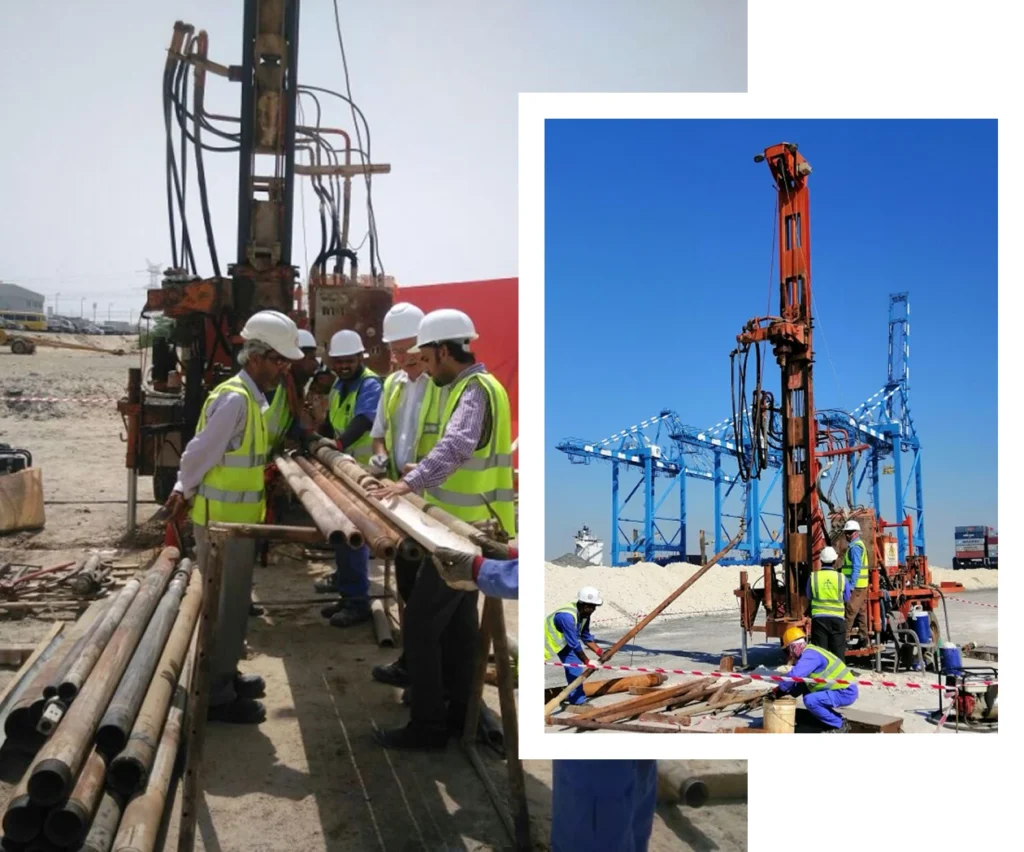
PT evaluates soil strength and compaction by driving a sampler into the ground. The results help determine foundation stability and bearing capacity for construction projects.
We provide rock sampling using HQ, HWF, and PWF techniques to evaluate strength, composition, and durability. Our tests ensure accurate geotechnical data for foundation design and construction projects.
We collect bulk soil samples to analyze composition, compaction, and suitability for construction, ensuring compliance with geotechnical standards.
CPT measures soil resistance to penetration, providing detailed information on soil strength, stratigraphy, and geotechnical properties for foundation design and construction planning.
The Packer Test measures the permeability of rock or soil by isolating sections and applying pressure. This helps assess water flow and support geotechnical evaluations for foundation and tunnel design.
This test measures the ability of soil or rock to transmit water under natural conditions. It provides crucial data for groundwater flow, drainage systems, and foundation design.
The Plate Load Test evaluates soil bearing capacity by applying a load to a steel plate and measuring settlement. It provides essential data for designing foundations and ensuring structural stability.
The Cross-Hole Seismic Test measures soil stiffness and seismic wave velocity by recording wave travel times between boreholes. It helps assess subsurface conditions and evaluate ground stability for construction projects.
This test measures soil resistance to electrical currents, providing data on composition, moisture, and corrosivity, essential for foundation design and groundwater studies.
We monitor groundwater levels to assess fluctuations and flow patterns, providing crucial data for drainage, foundation design, and environmental impact studies.
MASW uses surface waves to assess subsurface soil properties, such as stiffness and shear wave velocity, providing valuable data for geotechnical analysis and foundation design.
The Downhole Seismic Test measures seismic wave velocity at different depths, providing insights into subsurface soil and rock properties for foundation design and geotechnical analysis.
These tests measure soil permeability by observing water flow through soil samples under different pressure conditions. They provide essential data for drainage, foundation design, and groundwater studies.
ERT uses electrical currents to map subsurface resistivity, helping assess soil composition, groundwater conditions, and potential contamination for geotechnical and environmental studies.